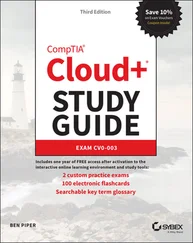If a living sycamore signifies the rise of America as the world’s preeminent financial power, an uprooted sycamore signifies its fall. God had allowed America’s power to be planted, take root and grow on Wall Street, and branch out to the world, rising to unprecedented heights of global power and prosperity. But as America turned from His will and ways, a sign was manifested.
If America refused to turn back, the blessings symbolized by the sycamore would be removed, that which had been built up would be broken down, and that which had been planted would be uprooted.
WEEK 7 EXPLORE and APPLY
Read chapter 16 of The Harbinger .
Watch or listen to the accompanying resource The Uprooted DVD or CD from The Harbinger: The Full Revelation eight-disc album.
Read Ezekiel 13:14; Jeremiah 45:4; Jeremiah 11:16–17.
Explore
Why does judgment involve exposing foundations?
How did the judgment of Egypt expose its foundations?
In a physical picture, when would the foundation of a house or building become totally exposed?
How many places in the Bible can you think of where a tree is used by God as a symbol?
How is a tree a good symbol of the nation of Israel? How can it be a symbol of other nations?
What other times can you recall the Bible using the image or symbol of a tree to speak of or foreshadow judgment?
What would the symbol of the uprooting of a tree mean for both Israel (the northern kingdom) and Judah (the southern kingdom)? How would the meaning of uprooting come true for them?
How is one of the harbingers not only a sign of judgment but also a specific sign linked to America’s foundation?
Why might it be appropriate to call Wall Street, “Sycamore”?
The force of 9/11 uprooted a sycamore tree. In what way is this image prophetic of what happened seven years later to the American economy?
What is a bit strange or different about the statue of the Sycamore of Ground Zero?
Where is the foundation of America’s financial power located?
What is striking about the fact that the statue of an uprooted sycamore tree was placed at the end of Wall Street?
What might the symbol of uprooting suggest?
Spiritual Truths
How can an uprooted America be replanted in its original biblical soil?
The Bible speaks of individuals also as trees. How is an individual like a tree?
Mission to Apply This Week
God called you to be like a tree, with strong and deep roots in Him and bearing eternal fruit. What fruit specifically do you believe God has called your life to bear?
Are you bearing it?
How can you become more strongly and deeply rooted in God and His life so that you might bear the fruit He has called your life to bear?
What steps can you take this week toward that purpose? Write it down as a mission in the space provided.
Take time now to commit this to God and pray for His help and anointing.
Seal this commitment in prayer (individually, in small groups, as a class, or congregationally).
Prepare for next week (groups only): This week read, go over, and explore the next chapter, “The Mystery of the Shemitah.”
Write Down
1. Your thoughts, notes, and insights
2. What you believe the Lord is calling you to do
3. Your mission for the days ahead
Chapter 8
The MYSTERY of the SHEMITAH
The Seventh Year
GOD GAVE ISRAEL a unique command: every seven years its people were to rest. It was to be a Sabbath year—the Shemitah. Israel’s observance or defiance of this ordinance would be a sign of its relationship to God and would determine its destiny. What happens when a nation that once knew God and His rest now drives Him out of its life? What happens when a believer does the same? This study will explore the mystery of the Shemitah as a sign of judgment against a nation that has driven God out of its life and its striking significance for America.
When you come into the land which I give you, then the land shall keep a sabbath unto the LORD. Six years you shall sow your field, and six years you shall prune your vineyard, and gather its fruit; but in the seventh year there shall be a sabbath of solemn rest for the land, a sabbath to the LORD.
—LEVITICUS 25:2–4
Just as God commanded ancient Israel to keep the seventh day of the week as a day of rest, so did God command His people at Sinai to give the land they were to enter a rest. It was called the Shemitah , meaning “the release,” “the remission,” or “the letting rest.” Every seventh year the fruits of the harvest were abandoned. (See Leviticus 25:5.)
Six years you shall sow your land and gather its produce, but the seventh year you shall let it rest and lie fallow, that the poor of your people may eat.
—EXODUS 23:10–11
Every seventh year God required the opening up of land to those in need. The poor would share equally with the rich. The land’s yield would become the possession of all.
Elul 29
The Shemitah touched not just land but also people:
At the end of every seven years you shall grant a release of debts. And this is the form of the release: Every creditor who has lent anything to his neighbor shall release it; he shall not require it of his neighbor or his brother, because it is called the LORD’S release [Shemitah].
—DEUTERONOMY 15:1–2
So at the end of every seventh year, which was the twenty-ninth day of the biblical month of Elul, all debts were canceled; the nation’s financial accounts were nullified.
The effects and repercussions of the Shemitah extend into the financial realm, the economic realm, and the realms of labor, employment, production, consumption, and trade. It would cause much of these things to cease or greatly diminish, and in the case of Elul 29, the wiping away of all credit and debt would nullify much of the nation’s financial realm.
Thus, the Shemitah in many ways had the outward appearance of an economic collapse. In fact, the financial and economic ramifications were so radical that the rabbis sought ways to get around it with such practices as selling land to non-Jewish people during the period affected or replacing symbolic actions and transactions instead of financial ones. The Shemitah remains one of the most unique ordinances in the Bible in its massive effect and repercussions on a nation’s financial and economic realm.
The Blessing Turns Into a Sign of Judgment
As a year of release and freedom, rest from one’s labors, and drawing near to the Lord, God meant the Shemitah year as a blessing. But ancient Israel rebelled and abandoned both the Sabbath and the Shemitah. The breaking of the Shemitah constituted a sign of the nation’s ruling God out of her life, driving Him out of her fields, labor, government, culture, homes, and life. Rather than serving the God of rest, the nation now served foreign idols and knew no rest, only the relentless pursuit of increase and gain.
Created to be a blessing, the Shemitah, in its breaking, would become a judgment. It would still come, but now in the form of national calamity. In the days of Jeremiah, foreign armies would seize the land, ravage the cities and fields, take the people captive into exile, and the land would rest. Commerce would stop. Every debt would be obliterated.
Seventy Years of Shemitahs
In pursuit of prosperity the people drove God and the Shemitah out of the land. But now it was the Shemitah that drove them out of the land, nullifying all of their gains.
Читать дальше












